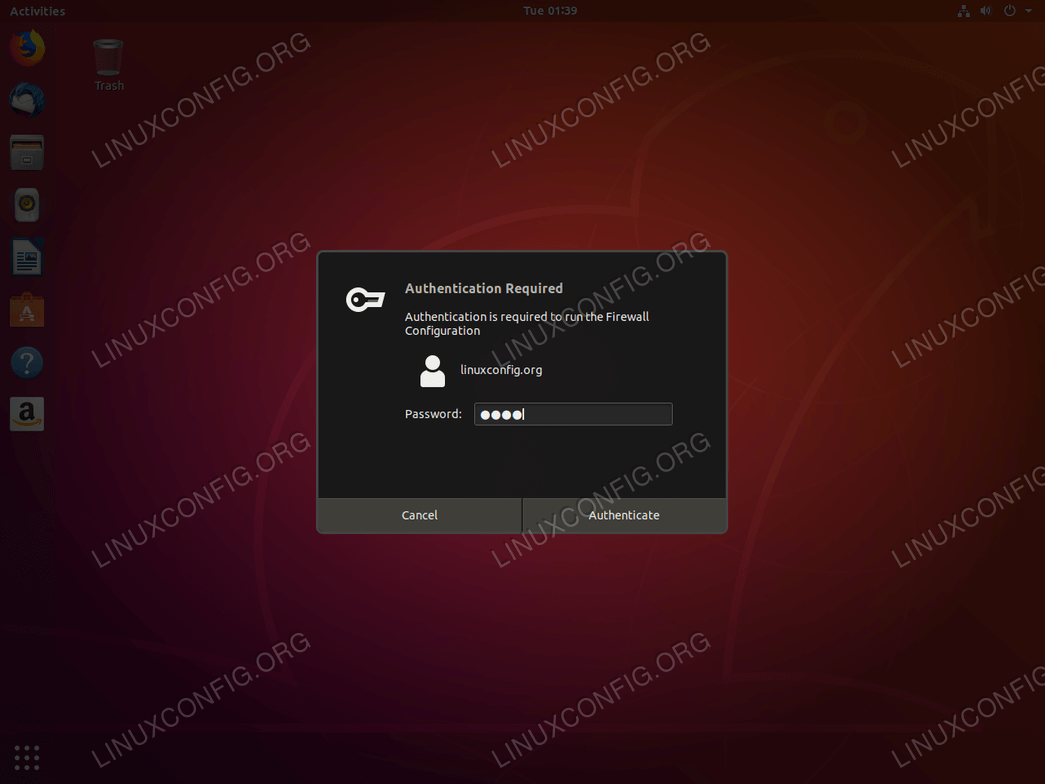
Ubuntu has a built-in L4 packet filtering system called Netfilter for access control and an interface, called iptables, for configuring the Netfilter. It is also certified for HITECH, FISMA, and FedRAMP. Furthermore, Ubuntu versions have been certified under Common Criteria, providing 3rd party approval of the operating system's security mechanisms. On the other hand, it can be further hardened to reduce its attack surface. Default configuration strikes a balance between security, performance, and usability. Ubuntu shows excellent concern for cybersecurity. Also, Long-term support (LTS) releases of Ubuntu are supported for five years and released every two years.

It is shipped in stable and regular release cycles, with a new release every six months. Ubuntu is a Debian-based Linux operating system and is suitable for both desktop and server use. # ufw resetīasic Firewall Information and Rule Settingįirewall Configuration using Iptables on Ubuntu 14.How to Set Up a Firewall with UFW on Ubuntu Resetting UFW will disable UFW and delete all active rules and it is the way if you want to revert all of your changes and start fresh. Note: Replace the rule allow 443/tcp with the original rule. Run the below command to remove the UFW rule by specifying the actual rule as an example. Note: Replace the rule number with the original number. Run the below commands to check the rule number and remove UFW rules. You can delete the UFW rules by rule number and by specifying the actual rule. Note: Using deny rules is the same as using allow rules, here only need to replace allow with denying. If only need to deny access to any ports from the IP address, use the below command. Note: Replace the IP address with the original IP address. Run the below command to deny all connections from an IP address. Note: Replace the IP address and port with your original IP address and required port setting. Run the below commands to allow specific IP addresses and specific IP addresses on a specific port as an example. Note: Replace the port range with your required range. Run the below commands to allow both TCP and UDP port ranges as an example. Run the below commands to allow HTTPS - Port 443 as an example. Run the below commands to allow HTTP - Port 80 as an example. Note: Replace the port number 3322 with your required custom port.

Run the below command to allow any custom port. Run the below command to allow the SSH connection. Note: Replace the Application Apache with the original Application name. Run the below command to find more information about a specific profile and included rules. Run the below command to list all application profiles available on your server.

While installing any package with the apt command, it will add an application profile to /etc/ufw/applications.d directory to describe the service and contains UFW settings. It is disabled by default, so use the below commands to enable and disable UFW.
#Ubuntu firewall install
# apt install ufwĬheck the UFW status once the installation is completed. It should be installed by default in Ubuntu 18, otherwise use the command below to install. It provides a user-friendly way to create an IPv4 or IPv6 host-based firewall and it is disabled by default on the ubuntu system. UFW is the default firewall configuration tool for Ubuntu and it was developed to ease iptables firewall configuration.


 0 kommentar(er)
0 kommentar(er)
